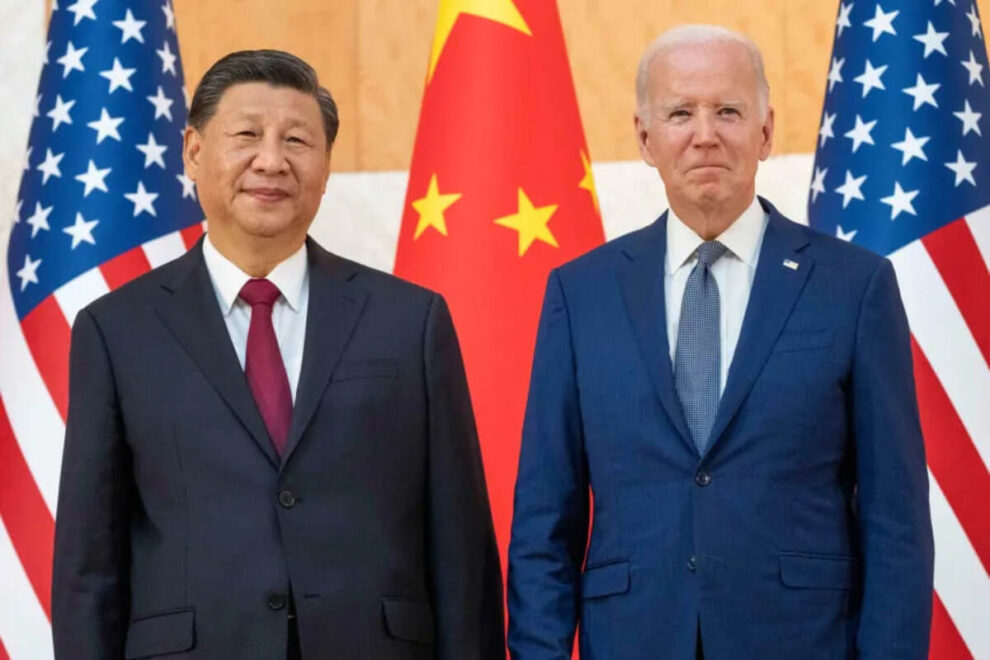Given the media prominence it enjoys, from television to mass print, newspapers and books, to radio and social media, the average American can scarcely be blamed for believing the hype surrounding China and the danger it supposedly poses. I readily admit that at a glance the narrative seems to hold water: China is a massive country; it has a large population and is the world’s second largest economy; its military capabilities and footprint are expanding; and it threatens long-standing U.S. allies.
Less readily discerned, however, are even more basic facts: that per capita China has less arable agricultural land than Saudi Arabia, and has about as much water as Senegal; that its population has already peaked and China will rapidly be joining the ranks of the oldest average populations by country; that as a maturing economy, China’s days of rapid growth are behind it; further, that China holds barely 1% of world oil reserves and is completely encircled by a combination of highly developed and wealthy states, such as South Korea and Japan, as well as some of the most populous and rapidly growing, such as India and Indonesia — to say nothing of Russia, an historical foe until only recently, or Vietnam. For all that is made of it, China’s vaunted military expansionism over the past decade consists of the creation of a pair of modest naval facilities in Djibouti and Cambodia, and a small presence in Gorno-Badakhshan (an autonomous region of Tajikistan). Despite decades of building, China still has no serious blue water naval capabilities, and as for the threats it poses to U.S. allies in the region, these disputes almost entirely consist of squabbles over spits of rock and sand several thousand miles from American shores.
In short, far from being on the cusp of taking over the world, China is trapped fighting for preponderance in its own neighborhood with a slowing economy and graying population, totally dependent on exports to maintain employment and on imports to feed its population and keep the lights on.
This is not to say China is a paper tiger — far from it. Rather, it is meant to provide some necessary context to China in the imagination of readers, increasingly primed to believe China is 10 feet tall by authors whose work at various beltway think tanks is paid for by a combination of foreign governments and Pentagon contractors. Such clear conflicts of interest in mind, it is little wonder that the papers and books produced by such compromised public intellectuals are uniformly hawkish and preoccupied with protecting the interests of countries besides that of the United States — indeed often making recommendations directly in conflict with what would be best for Americans.
Given the real dangers that exist, therefore, it is important to emphasize that what is put at risk by the emergence of a stronger China is not the United States, its territories or possessions, its people, its resources, et cetera; it is rather, in the words of former Secretary of State Rex Tillerson, the total “U.S. naval domination of the Pacific,” right up to the very shores of China itself.
But how much is the attempted maintenance of such an already tenuous status quo worth? Already independent analysts, quasi-official think tanks and the Pentagon’s own war gamers routinely predict the U.S. suffering horrible losses to Chinese rocket forces in a conflict over Taiwan. Apart from such risks as would attend even a minor war between Washington and Beijing, including economic disruptions on a par with those produced by global lockdowns in the face of COVID, a continuation of the current policy of attempted military hegemony everywhere, with several hundred foreign military bases and trillion dollar annual military spending, will surely help bankrupt us at the same time it makes us less safe and less free here at home.
From microchips to media coverage, the history of Sino-American relations and the Uighurs to facing unpleasant facts, my new book “The Fake China Threat and Its Very Real Danger” represents the opinions of those with no sympathies to Beijing but who recognize its strategic situation, our interdependence, and the dangers of provoking an unnecessary conflict with China in its own backyard.
To be sure, the fake China threat narrative has its beneficiaries: the defense contractors, lobbyists, and members of Congress they fund, as well as those departments whose budgets and purview will expand. Not among the beneficiaries, however, are the American people: and they should just say NO! to the fake China threat.
Source: OC Register















